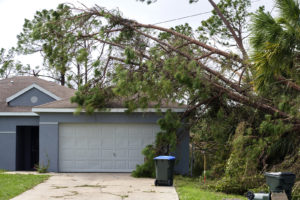“The U.S. has sustained 341 weather and climate disasters since 1980,” according to the National Oceanic and Atmospheric Administration (NOAA). This averages to 7.9 weather and climate disasters per year.
Then there are the wildfires we experienced, all 66,255 of them.
Are you ready for the next natural disaster?
Disaster preparedness can save your home, your life, and even thousands of dollars on homeowners insurance.
Is a disaster headed your way?
Florida and Louisiana may be the most common victims of the Atlantic hurricane season, but as we have seen in the last few years, everyone from Texas to the Jersey shore needs to be prepared.
Anyone who has been through a hurricane or other natural disaster will tell you that waiting to prepare when a disaster is on the horizon isn’t wise.
Get supplies now and make plans for what you’ll do when the next disaster hits.
Evacuate or hunker down?
If an evacuation order is mandated, then you should absolutely pack up and go. In fact, even if there is a chance a hurricane will hit your area, you ought to get out of town early if you can.
Otherwise, you face becoming trapped and vulnerable in the ensuing traffic jams. Plus, as we have seen during the worst weather disasters of the last decade, it isn’t always the wind and rain that is the worst threat to your safety – often it is the mayhem that follows. Whether you are staying or going, you need to have your emergency kit ready and be well-stocked on essentials.
What you need if you decide to hunker down:
- Plenty of water (at least 1 gallon of water per person, per day)
- First aid kits
- Medications
- Flashlights
- Radio
- Batteries
- Copies of important documents including ID and your homeowner insurance policy
- Weather-appropriate clothing, such as heavy jackets, boots and rain gear.
- Food for three to seven days (don’t forget pet, baby food and infant formula)
Evacuating? Before heading out, do the following:
- Turn off all pilot lights and shut off the gas line into the home.
- Turn off the water supply and the master electrical breaker.
- Secure anything outdoors that might fly away
- Board up the windows or close hurricane shutters.
- Use sandbags where necessary
Get approaching hurricane, tornado, or other storm alerts and forecasts by visiting the National Weather Service’s National Hurricane Center online at nhc.noaa.gov. For wildfire preparedness, visit nfpa.gov, the National Fire Protection Association’s website.







